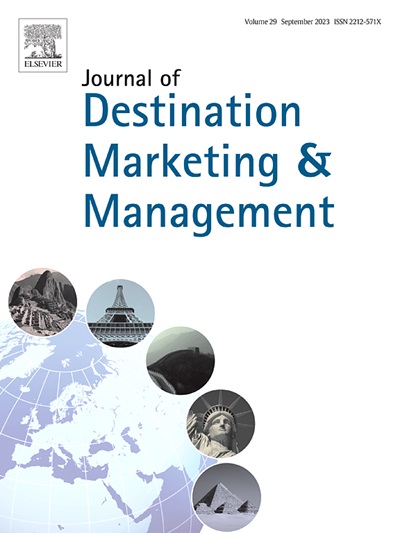Sense of confinement and preferences of virtually-delivered tourism offerings: A tale of two stories
IF 7.4
2区 管理学
Q1 HOSPITALITY, LEISURE, SPORT & TOURISM
引用次数: 0
Abstract
Scholarly focus on virtual tourism's substitutability has traditionally been on inaccessible destinations (e.g. extinct sites, overly-toured places). The COVID-19 pandemic, however, highlighted its relevance for individuals experiencing confinement. This study uses the pandemic as a natural laboratory to explore how a sense of confinement—stemming from either limited mobility (capability-induced) or unmet travel aspirations (aspiration-induced)—influences the acceptance of reality-based, virtually-delivered tourism offerings. This study employed a multi-method approach to address two objectives. One objective is to understand whether and how an individual's sense of confinement plays a role in their virtual tourism adoption intent and their desire to physically visit a destination through the mediation of perceived substitutability. The survey results demonstrate that capability-induced confinement enhances the perceived substitutability of virtual tourism, thereby increasing future adoption intentions. In contrast, aspiration-induced confinement does not exhibit the same effect. Notably, individuals still show a desire to physically visit places they have toured virtually. The other objective is to develop a baseline understanding of what virtual experience design features may be preferred by consumers with various degrees of sense of confinement. The conjoint analysis reveals a strong preference for socialization features in virtual tourism design.
虚拟旅游产品的局限感和偏好:两个故事的故事
学者们对虚拟旅游可替代性的关注历来集中在难以到达的目的地(如已灭绝的遗址、游人如织的地方)。然而,COVID-19 大流行病凸显了虚拟旅游与经历禁闭的个人的相关性。本研究将这一流行病作为一个自然实验室,以探索因行动不便(能力诱发)或旅游愿望未实现(愿望诱发)而产生的束缚感如何影响人们对基于现实的虚拟旅游产品的接受程度。本研究采用多种方法来实现两个目标。一个目标是了解个人的束缚感是否以及如何通过感知可替代性的中介作用,影响他们采用虚拟旅游的意愿以及实际游览目的地的愿望。调查结果表明,由能力引起的封闭感增强了虚拟旅游的可替代性感知,从而提高了未来的采用意愿。相比之下,愿望诱导的限制并没有表现出同样的效果。值得注意的是,个人仍然表现出希望实际游览他们通过虚拟方式游览过的地方。另一个目标是了解具有不同程度束缚感的消费者可能偏好哪些虚拟体验设计特征。联合分析表明,消费者对虚拟旅游设计中的社交功能有着强烈的偏好。
本文章由计算机程序翻译,如有差异,请以英文原文为准。
求助全文
约1分钟内获得全文
求助全文
来源期刊
CiteScore
18.60
自引率
3.60%
发文量
46
审稿时长
43 days
期刊介绍:
The Journal of Destination Marketing & Management (JDMM) is an international journal that focuses on the study of tourist destinations, specifically their marketing and management. It aims to provide a critical understanding of all aspects of destination marketing and management, considering their unique contexts in terms of policy, planning, economics, geography, and history. The journal seeks to develop a strong theoretical foundation in this field by incorporating knowledge from various disciplinary approaches. Additionally, JDMM aims to promote critical thinking and innovation in destination marketing and management, expand the boundaries of knowledge, and serve as a platform for international idea exchange.

 求助内容:
求助内容: 应助结果提醒方式:
应助结果提醒方式:


